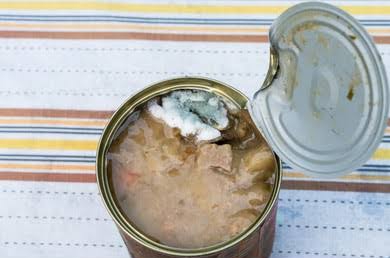Expired foods are a common concern for many households. While it may be tempting to consume food past its expiration date to avoid waste, understanding the risks and guidelines is crucial. Here’s what you need to know about consuming expired foods.
Understanding Expiration Dates
Expiration dates are labeled on food products to indicate the last date the manufacturer guarantees the product’s peak quality. These dates include:
- Sell-By Date: This date helps stores manage inventory. It suggests how long a product should be displayed for sale.
- Best-By Date: This date refers to when the product will be at its best flavor or quality. It is not a safety date.
- Use-By Date: This date is the last recommended date for the use of the product at peak quality. It is not a safety date, except for infant formula.
Potential Risks of Consuming Expired Foods
Consuming expired foods can pose several health risks:
- Food Poisoning: Bacteria such as Salmonella, E. coli, and Listeria can grow on expired foods, leading to foodborne illnesses.
- Nutrient Loss: Over time, expired foods may lose their nutritional value, making them less beneficial for your health.
- Changes in Taste and Texture: Expired foods often have altered taste, smell, and texture, which can be unappetizing and indicate spoilage.
Foods That Are Generally Safe to Consume Past Expiration
Certain foods can still be safe to consume after their expiration date, provided they are stored correctly:
- Canned Goods: If the can is not damaged, the contents are typically safe for years beyond the expiration date.
- Dry Goods: Foods like pasta, rice, and cereal can last well beyond their expiration dates if kept in a cool, dry place.
- Frozen Foods: Properly stored frozen foods can be safe indefinitely, though quality may diminish over time.
Signs of Spoilage
Before consuming expired foods, look for signs of spoilage:
- Mold: Visible mold is a clear indicator that food should not be consumed.
- Off Smell: A sour or rancid smell usually indicates spoilage.
- Discoloration: Any change in color can be a sign of bacterial growth or chemical changes.
How to Safely Manage Expired Foods
To safely manage and minimize the consumption of expired foods:
- Regularly Check Dates: Keep track of expiration dates and consume foods accordingly.
- Proper Storage: Store foods at appropriate temperatures and conditions to extend their shelf life.
- Use Preservation Techniques: Techniques like canning, freezing, and dehydrating can help extend the life of your food.
While it is essential to be mindful of expiration dates, understanding which foods can be safely consumed and recognizing signs of spoilage can help prevent foodborne illnesses and reduce waste. Always prioritize safety and quality when deciding whether to consume expired foods.






















